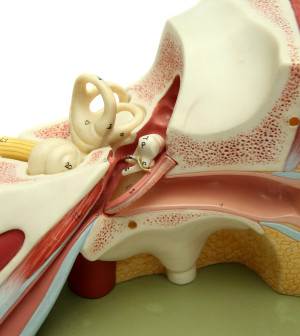- 8 Ways to Increase Dopamine Naturally
- 7 Best Breads for Maintaining Stable Blood Sugar
- Gelatin vs. Collagen: Which is Best for Skin, Nails, and Joints?
- The Long-Term Effects of Daily Turmeric Supplements on Liver Health
- Could Your Grocery Store Meat Be Causing Recurring UTIs?
- Are You Making This Expensive Thermostat Error This Winter?
- Recognizing the Signs of Hypothyroidism
- 10 Strategies to Overcome Insomnia
- Could Artificial Sweeteners Be Aging the Brain Faster?
- Techniques for Soothing Your Nervous System
Possible Gap Seen in Adult Care for Childhood Cancer Survivors


Many primary care doctors feel they’re not prepared to deal with adult survivors of childhood cancer, a new study finds.
Researchers surveyed internists — primary care doctors for adults — across the country and found that 51 percent of respondents said they had cared for at least one childhood cancer survivor. Among those doctors, 71 percent said they had never received a treatment summary for these patients.
Most of the internists said they felt somewhat uncomfortable caring for childhood cancer survivors and most said they preferred to care for these patients in tandem with a doctor at a cancer center.
The study appeared recently in the Annals of Internal Medicine.
These findings show the need to provide primary care doctors with access to and education about care guidelines for childhood cancer survivors, as well as the importance of a survivorship care plan for doctors and their patients, suggested study first author Dr. Eugene Suh. He is an assistant professor in the division of pediatric hematology and oncology at Loyola University Chicago Stritch School of Medicine.
It’s estimated that there are more than 350,000 childhood cancer survivors in the United States, and about 70 percent of adult childhood cancer survivors have a chronic health condition, the study authors pointed out in a university news release.
“From an oncologist’s standpoint, it is our responsibility to the patient to work closely with primary care providers to ensure cancer survivors are healthy and informed, and that they receive the best health care possible,” Suh said in the news release.
“In an age of information technology sharing and education, resource availability could be accomplished by providing links to guidelines on web pages where primary care physicians turn for information and through webinars on survivor advocate websites,” Suh suggested.
“For some survivors [their cancer] is a period of their life they would prefer to put behind them and not to think about, but it’s important for them to be engaged in their health care,” he also noted.
“We realize if they are to come back into the health-care setting it would most likely be with their primary care provider. That is why it’s so important for adult primary care physicians to feel comfortable caring for these patients,” Suh explained.
More information
The U.S. National Cancer Institute has more about childhood cancers.
Source: HealthDay
Copyright © 2026 HealthDay. All rights reserved.










